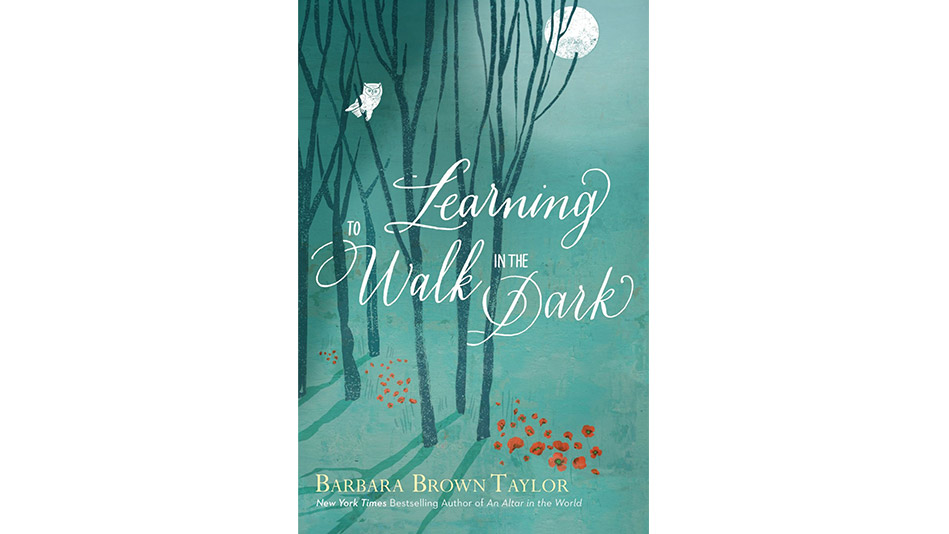
Why You Shouldn't Be Afraid of the Dark
It is late August. I am lying in my yard on a blow-up mattress waiting for Friday to become Friday night, which is how I know people are wrong when they say, "It's as clear as the difference between night and day." That might be true at noon or midnight, but here at the liquid edge between day and night, the difference is so unclear that there are many words for it: sundown, twilight, nightfall, dusk. When I sit up for a better look, the mattress hisses like a rubber raft drifting on eventide. According to the rabbis, the Sabbath begins when three stars are visible in the sky, in which case I am not there yet. As it turns out, there is a lot of ground to cover between one sunset and three stars.
I am here to begin my study of darkness with the real thing, paying attention to it the way an artist or an astronomer might, instead of using it to gauge how much more I can get done before bed. Most nights sundown is useful only insofar as it tells me that the horses are stamping their feet at the pasture gate waiting to be fed. Once they and the three dogs have emptied their buckets and bowls, it is back to the kitchen to make supper, sort through the debris that collects on every flat surface during the upheavals of an ordinary day, start a load of laundry, and maybe watch an old episode of West Wing or Grey's Anatomy before settling down with a good book until the words run together and sleep puts the lights out.
Some nights the distractions are so plentiful that I do not even know what phase the moon is in, which was the whole point of moving to the country in the first place. When my husband Ed and I lived in the city, we almost never looked at the sky. When we were in the car, we looked at traffic. When we were on foot, we looked at the sidewalk while we talked about work, the weekend, and the kids. There was little reason to look up, since the night sky was almost always the same color. The reflective dome over the city took all the light that came its way, mixed it up, and painted the sky a metallic taupe that admitted few heavenly bodies. Even when the moon was full, it was hard to get a glimpse of it between the tall buildings that ringed the city in every direction.
One night, on our evening walk, we decided to haul anchor and move someplace where we could be on more intimate terms with the moon in all her seasons. If this does not sound important to you, I am not sure I can explain it. It had something to do with the growing awareness that our own seasons were numbered and we did not have forever to start paying attention to them. Plus, there is something promising in the cycles of the moon—now you see her, now you don't—for those who are more than halfway through what feels for all the world like a linear life with a period in view.
I took a cut in pay when I moved to the country, but the sky alone is worth it. Tonight, for instance, I am lying on a circle of flagstones still warm from the day's sun. The house is right behind me, at the top of a small hill. In front of me the view opens in every direction, with the hill falling away into darkness and the silhouette of a big bald-faced mountain dominating the horizon. There are no other dwellings visible in any direction, which means that there are no house lights, porch lights, security lights, or headlights to compete with whatever is about to show up in the sky.
The sky over my head has changed from blue to saffron to an inky plum color, which the thin gray clouds on the horizon are soaking up like cloths dropped on a spill. The air is not cool yet, but it is cooling fast. The light cotton sheet I have thrown over my legs is starting to feel damp. Dew is condensing on my upper lip. Above my head, a single bat is making loop de loops as it hones in on hapless insects and plucks them from the air. If the rabbis had said that the Sabbath begins when you see three bats in the sky, then I would be a third of the way there—but there are still no stars in the sky. I thought I saw one a minute ago, but when I blinked it was gone.
During the day it is hard to remember that all the stars in the sky are out there all the time, even when I am too blinded by the sun to see them. While I am driving to the post office to pick up my mail, a shooting star could be flying right over the hood of my car. While I am walking to the library to return an overdue book, Orion's Belt could be twinkling right above me. It is always night somewhere, giving people the darkness they need to see, feel, and think things that hide out during the day.











